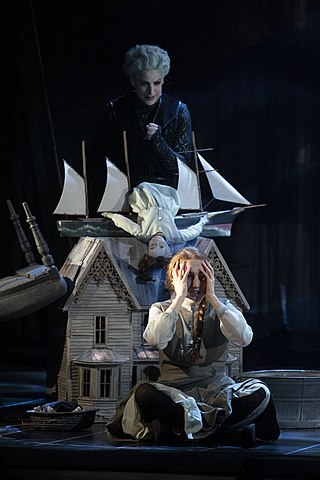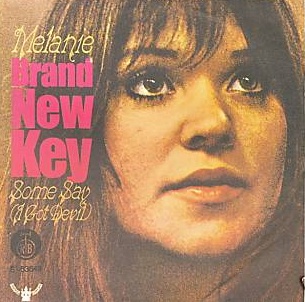Related Research Articles
Crippleware has been defined in realms of both computer software and hardware. In software, crippleware means that "vital features of the program such as printing or the ability to save files are disabled until the user purchases a registration key". While crippleware allows consumers to see the software before they buy, they are unable to test its complete functionality because of the disabled functions. Hardware crippleware is "a hardware device that has not been designed to its full capability". The functionality of the hardware device is limited to encourage consumers to pay for a more expensive upgraded version. Usually the hardware device considered to be crippleware can be upgraded to better or its full potential by way of a trivial change, such as removing a jumper wire. The manufacturer would most likely release the crippleware as a low-end or economy version of their product.

"Lavender's Blue" is an English folk song and nursery rhyme from the 17th century. Its Roud Folk Song Index number is 3483. It has been recorded in various forms and some pop versions have been hits in the U.S. and U.K. charts.
"Africa" is an 18th-century hymn tune by American choral composer William Billings, who worked in New England.
"She Moved Through the Fair", also called "She Moves Through the Fair", is a traditional Irish folk song, which exists in a number of versions and has been recorded many times. The narrator sees his lover move away from him through the fair, after telling him that since her family will approve, "it will not be long, love, till our wedding day". She returns as a ghost at night, and repeats the words "it will not be long, love, till our wedding day", intimating her own tragic death and the couple's potential reunion in the afterlife.
"Foggy Dew" or "Foggy, Foggy Dew" is an English folk song with a strong presence in the South of England and the Southern United States in the nineteenth century. The song describes the outcome of an affair between a weaver and a girl he courted. It is cataloged as Laws No. O03 and Roud Folk Song Index No. 558. It has been recorded by many traditional singers including Harry Cox, and a diverse range of musicians including Benjamin Britten, Burl Ives, A.L. Lloyd and Ye Vagabonds have arranged and recorded popular versions of the song.

The Turn of the Screw is a 20th-century English chamber opera composed by Benjamin Britten, with a libretto by Myfanwy Piper, based on the 1898 novella The Turn of the Screw by Henry James.
"The Water Is Wide" is a folk song of Scottish origin. It remains popular in the 21st century. Cecil Sharp published the song in Folk Songs From Somerset (1906).
"The Parting Glass" is a Scottish traditional song, often sung at the end of a gathering of friends. It has also long been sung in Ireland, where it remains popular and has strongly influenced how it is often sung today. It was purportedly the most popular parting song sung in Scotland before Robert Burns wrote "Auld Lang Syne".

Terence Ernest Britten is an English-Australian singer-songwriter and record producer, who has written songs for Tina Turner, Cliff Richard, Olivia Newton-John, Status Quo and Michael Jackson amongst many others. Britten won the Grammy Award for Song of the Year in 1985 for "What's Love Got to Do with It".
"The Lincolnshire Poacher" is a traditional English folk song associated with the county of Lincolnshire, and deals with the joys of poaching. It is considered to be the unofficial county anthem of Lincolnshire. It is catalogued as Roud Folk Song Index No. 299.

"There Was a Jolly Miller Once" is a traditional folk song from the Chester area in northwest England. It is often titled "The Miller of the Dee" or "The Jolly Miller".
"Down by the Salley Gardens" is a poem by William Butler Yeats published in The Wanderings of Oisin and Other Poems in 1889.

"Brand New Key" is a pop song written and sung by American folk music singer Melanie. Initially a track of Melanie's album Gather Me, produced by Melanie's husband Peter Schekeryk, it was known also as "The Rollerskate Song" due to its chorus. It was her greatest success, scoring No. 1 on the Billboard Hot 100 singles chart during December 1971 and January 1972. Billboard ranked it as the No. 9 song of 1972. It also scored No. 1 in Canada and Australia and No. 4 on the UK Singles Chart.
Lord Saltoun and Auchanachie, is a Scottish folk song.
"Now Sleeps the Crimson Petal" is a poem written by Alfred Tennyson. It is like a sonnet in having fourteen iambic lines, but it is not rhymed, and it does not follow either the Shakespearean or Petrarchan organization. It was first published in 1847, in The Princess: A Medley.

"(What Is) Love?" is a song recorded by American entertainer Jennifer Lopez. Originally entitled "What Is Love?", the song appeared on the soundtrack to The Back-up Plan (2010), a film in which Lopez stars, version presented in Italy at the Sanremo Music Festival 2010. The song was later included on Lopez's seventh studio album Love? (2011), as the album's title track. "(What Is) Love?" is a midtempo electropop song written by Diana "Wynter" Gordon, with the song's producer Emile "D'Mile" Dernst II. The song is about "not knowing what love is," according to Gordon. A remix of "(What Is) Love?", entitled "What Is Love? Part II", was produced by Jean-Baptiste. It was considered for inclusion on Love? and was leaked onto the internet in April 2013.
A Dunnie is a small Brownie-like being in the folklore of the Anglo-Scottish borders, specifically Northumberland, the most famous being that of the Hazlerigg Dunnie of Hazlerigg in the parish of Chatton, Northumberland. The Dunnie has been known to take the form of a horse in order to trick a rider into mounting him before disappearing and leaving them in the muddiest part of the road. He also is said to disguise as plough-horses only to vanish when the ploughman takes him into the stalls.

"Levy-Dew", also known as "A New Year Carol" and "Residue", is a British folk song of Welsh origin traditionally sung in New Year celebrations. It is associated with a New Year's Day custom involving sprinkling people with water newly drawn from a well. The song was set to music by Benjamin Britten in 1934.

"Rain and Snow", also known as "Cold Rain and Snow", is an American folksong and in some variants a murder ballad. The song first appeared in print in Olive Dame Campbell and Cecil Sharp's 1917 compilation English Folk Songs from the Southern Appalachians, which relates that it was collected from Mrs. Tom Rice in Big Laurel, North Carolina in 1916. The melody is pentatonic.

"Ca' the yowes to the knowes" is a Scottish folk song collected by Robert Burns from 1794. Although sometimes attributed to Burns himself, the seven-stanza original poem is thought to be the work of Ayrshire poet Isabel Pagan, a contemporary of Burns. The poem was partially revised by Burns, and he added an eighth stanza. Burns later re-wrote the poem on a solitary stroll in the country, and this second version consists of six stanzas. It is possible that Burns was not aware that Pagan was the original author, only noting that "this song is in the true Scottish taste, yet I do not know that either air or words were ever in print before."
References
- ↑ Boris Ford Benjamin Britten's poets: the poetry he set to music 1996 Page 213 "This volume of folk songs included 'Bonny at morn' as the penultimate song, which Britten also included in Eight Folk Song Arrangements (see p. 281). trad. I will give my love an apple I will give my love an apple without e'er a core, I will give.."
- ↑ Reeves, James (1960) The Everlasting Circle. London: Heinemann; pp. 161-62